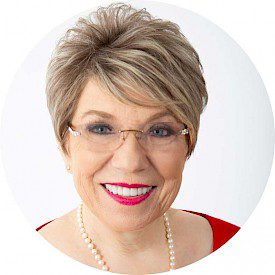10 Details Recruiters Will Actually Look At in Your Resume
Image via DALL-E

First, any jobseeker should learn that a resume is more than just a summary of their training and experiences. It also serves as one’s first chance to make an impression on a recruiter. A resume’s ultimate goal is to land an interview where the candidate can further showcase their skills and qualifications. Still, it must be memorable enough to stand out among tens, if not hundreds, that may be just like it.
What do recruiters look for in resumes, and what essential details are enough to merit an interview and consideration for a competitive role? Here are the answers you need as a jobseeker:
1) Clear Contact Information
One basic yet essential set of details every recruiter will look for is precise and up-to-date contact information. It might seem obvious, but you need more accurate contact details to ensure a valuable job opportunity.
Ensure that your phone number, email address, and home address are correct and written out in a way that looks professional whenever you’re going through ads for job hiring in Metro Manila or other vital areas. If you’re using a personal email, avoid informal-sounding addresses and opt for something more professional, like your name or a simple variation. Not only will this make you more accessible, but it also demonstrates in-demand qualities such as attention to detail to a recruiter.
2) Relevant Work Experience
Recruiters will scrutinize your work experience to assess if you’re a good fit for the role. They’ll want to see clear, concise descriptions of your past roles and how they align with the position you’re applying for.
Tailor your resume to highlight your relevant experiences and make it easy for them to find what they are looking for. Focus on accomplishments rather than just listing job duties, use bullet points to clearly outline what you’ve achieved in each role, and quantify your impact where possible. For example, instead of saying you “managed a team,” you could say, “managed a team of 10, increasing productivity by 20 percent over six months.”
3) Education and Certifications
Your educational background is another crucial detail that recruiters will examine, especially if you’re a fresh graduate. Could you list your degree(s), the institution you attended, and your graduation year?
If you’ve recently completed relevant courses or certifications, could you include those? Certifications in project management, data analysis, or digital marketing can set you apart from other candidates and make your resume stand out.
I would also like to include any honors or distinctions relevant to your career prospects. These details will signal to recruiters that you are a top performer.
4) Skills Related to the Job
Recruiters also scan resumes for specific skills that match the descriptions of the job vacancies in question. Many companies now use Applicant Tracking Systems (ATS), which screen resumes for keywords, so it’s essential to include the relevant skills listed in the job posting.
However, it won’t be enough to fill your resume with buzzwords—you’ll want to back up your skills with examples. Hard skills, like software proficiency, and soft skills, like communication or leadership, should be included, provided they’re relevant to the position you’re seeking.
5) Achievements and Metrics
More than just responsibilities, recruiters want to see results. They are drawn to resumes that quantify achievements, giving them a clearer picture of your impact in previous roles.
You can take advantage of metrics to ensure your past success. For example, rather than simply stating you “improved sales,” you could say you “boosted sales by 15 percent within the first quarter.” Numbers add credibility to your accomplishments and make your resume more compelling.
6) Keywords and Industry Terminology
It’s also worth noting that recruiters, especially those using ATSs, will look for industry-specific keywords that align with the job you’re applying for. Make an effort to customize your resume for each job application.
If you’re in a technical field, including keywords like “agile methodologies” or “data visualization” might catch the recruiter’s eye. Similarly, in creative industries, terms like “brand strategy” or “content management” could show that you know the ins and outs of the industry and give your resume a competitive edge.
7) Clean and Professional Formatting
How your resume looks is almost as important as its content. Recruiters value a clean, professional layout that makes the document easy to read.
Avoid cluttered designs or overly artistic fonts, as these can be distracting. Stick to a simple format with clearly defined sections, consistent font usage, and proper spacing. Together, these elements will make your resume more readable and let the recruiter know you are organized and keen to appear like a consummate professional.
8) A Strong Career Objective or Summary
A well-written career objective or summary at the top of your resume can immediately capture a recruiter’s attention. This section should summarize who you are as a professional and what you aim to achieve in your career.
An objective for entry-level job seekers may help set the tone for your application, while seasoned professionals might benefit from a summary highlighting key accomplishments and skills. Customize this section to the specific job you’re applying for, and clarify how your background matches the company’s needs.
9) Volunteer Work and Extracurriculars
When evaluating fresh graduates or changing careers, recruiters often appreciate seeing volunteer work or extracurricular activities on a resume. These can show initiative, leadership, and a community or Personal Development commitment.
If you’ve volunteered in a capacity relevant to the job you’re applying for, don’t hesitate to include it. Say you’re applying for a marketing role and volunteered to run social media for a nonprofit or your church; this experience can help bolster your qualifications.
10) References Upon Request
Although they’re not always required nowadays, it remains good practice to include a line at the end of your resume stating “References available upon request.” Recruiters may check your references before extending an offer, so having them ready shows you’re prepared and can trust other people to back you up.
Ensure your recent references are relevant to the job you’re applying for. Also, notify them beforehand that they might be contacted so they’re ready for that important email or call.
If you know what recruiters are looking for in a resume, you can rework yours in time for your next round of job applications and significantly improve your chances of getting noticed. Emphasize the details that matter—such as relevant experience, measurable achievements, and a clean format—and let your individuality and professionalism come through.
Subscribe to our newsletter and Explore insightful conversations on workplace culture, Burnout, and leadership at the Breakfast Leadership Network, ranked Top 20 globally. Join us to thrive in the modern work environment.
Please stay connected with us! For more insights and valuable content, don’t forget to check out the following resources:
– **Breakfast Leadership Show Podcast**: Tune in to our podcast and get inspired by leadership lessons and success stories from top industry leaders.
– **Breakfast Leadership YouTube Channel**: Subscribe to our YouTube channel for video content on leadership, personal development, and more.
– **Hire Michael D. Levitt to Speak**: Looking for a dynamic speaker for your next event? Hire Michael D. Levitt, the founder of Breakfast Leadership, to share his expertise and insights.
Follow us on LinkedIn for the latest updates. Remember to share this article with your network!
Originally Published on https://www.breakfastleadership.com/
























